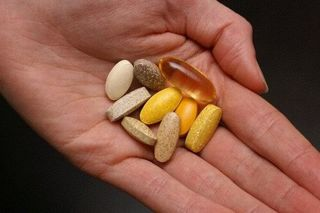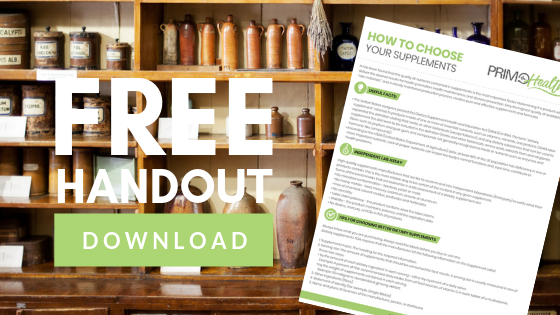
It has been found that the quality of nutrients contained in supplements is the most important factor determining if a product will deliver the desired results for health promotion, health maintenance, and disease prevention. Only the highest quality of available “raw materials”, and a closely monitored production process, creates pure and effective supplements and formulas.
Useful Facts:
- The United States congress passed the Dietary Supplement Health and Education Act (DSHEA) in 1994. The term "dietary supplement" referred to products made of one or more of essential nutrients, such as vitamins, minerals, and proteins. DSHEA later expanded the definition stating that herbs, or other botanicals (except tobacco), and any dietary substances that can be used to supplement the diet were to be included in the definition (herbs and other botanicals, amino acids, extracts from animal glands, fibers such as psyllium and guar gum, and compounds not generally recognized as foods or nutrients such as enzymes and hormone-like compounds).
- According to the USDA (United States Department of Agriculture) data, at least 40% of the US population has deficiency in one or more important nutrients. Lack of proper nutrients can impair the body’s normal functions and, over time, contribute to health problems.
Independent Lab Assay
High quality supplements manufacturers that we like to recommend, hire independent laboratories (third party) to verify what their products contain. This is the most reliable way to be certain of the content in any given supplement.
Some of the benchmarks that are looked for in a lab assessment of a dietary supplement are:
- No microbial contamination - bacteria, yeast, or mold.
- No heavy metals - lead, mercury, cadmium, arsenic or aluminum.
- Free of chemical solvent residue, pesticides and herbicides. • No rancidity.
- Label claim potency - the product contains what the label claims.
- Stability - the product maintains potency until the expiration date.
- No dioxins, mercury, or PCBs in fish oil products.
Tips for choosing better dietary supplements
 Always know what you are purchasing. Always read the labels before you buy or use any dietary supplements. FDA requires that the manufactures list the following information on the Supplement Label:
Always know what you are purchasing. Always read the labels before you buy or use any dietary supplements. FDA requires that the manufactures list the following information on the Supplement Label:
-
Supplements Facts: The heading for the required information.
- Serving size: The amount of supplements that should be consumed for best results. A serving size is usually measured in one of these two ways:
- By the amount of each dietary ingredient in each serving - either by a percent of a daily value:
Example: A percent of FDA-recommended daily intake, from all food sources, of vitamin C in each tablet of a multivitamin,
- by the weight of supplements contained in each serving
Example: 50 milligrams standardized ginseng extract.
- Other ingredients (fillers).
- Statement of identity (for example, Gingko Biloba).
- Name and place of business of the manufacturer, packer, or distributor.
Additional Information (may be included on the label):
-
Warnings and Cautions: who should not take the product, or who should be careful when taking the supplement.
Example: pregnant women.
-
Interactions and side effects: Any possible reaction that the supplement may cause in combination with other prescription and OTC medicines, as well as food or other dietary supplements.
-
Expiration date: If necessary, the date after which the product should be no longer used.
To receive a FREE Supplement Consultation and 25% off of your first supplement order, just click on the button below!



 Always know what you are purchasing. Always read the labels before you buy or use any dietary supplements. FDA requires that the manufactures list the following information on the Supplement Label:
Always know what you are purchasing. Always read the labels before you buy or use any dietary supplements. FDA requires that the manufactures list the following information on the Supplement Label: 
